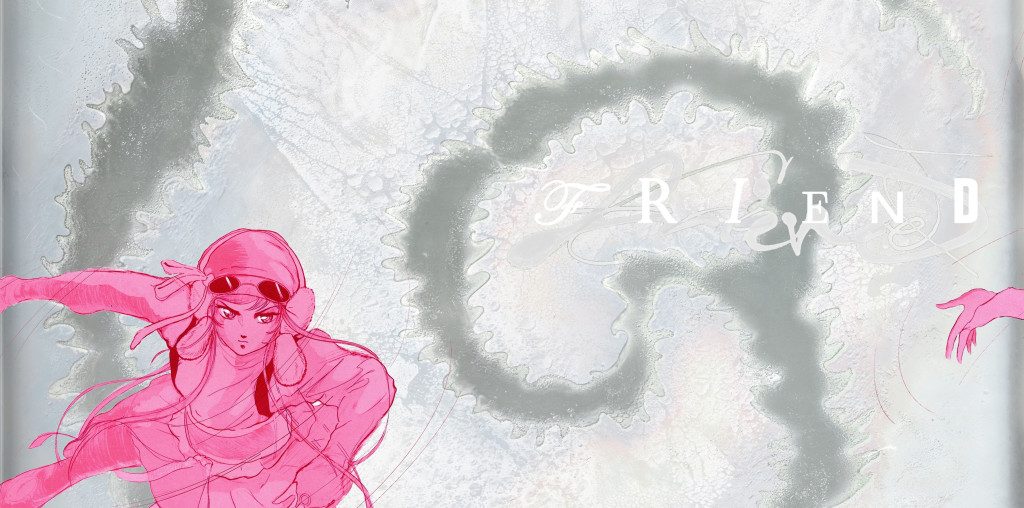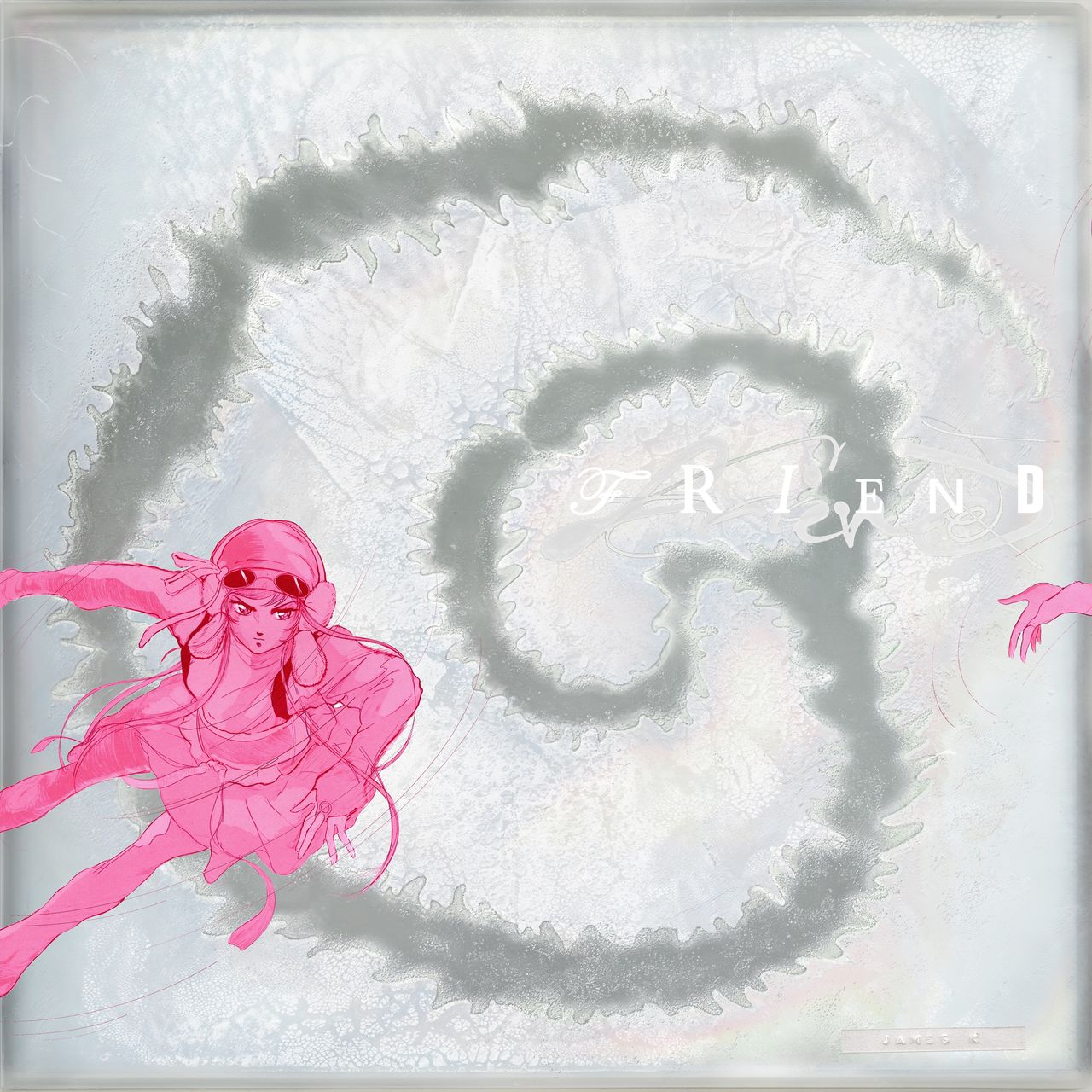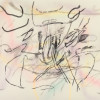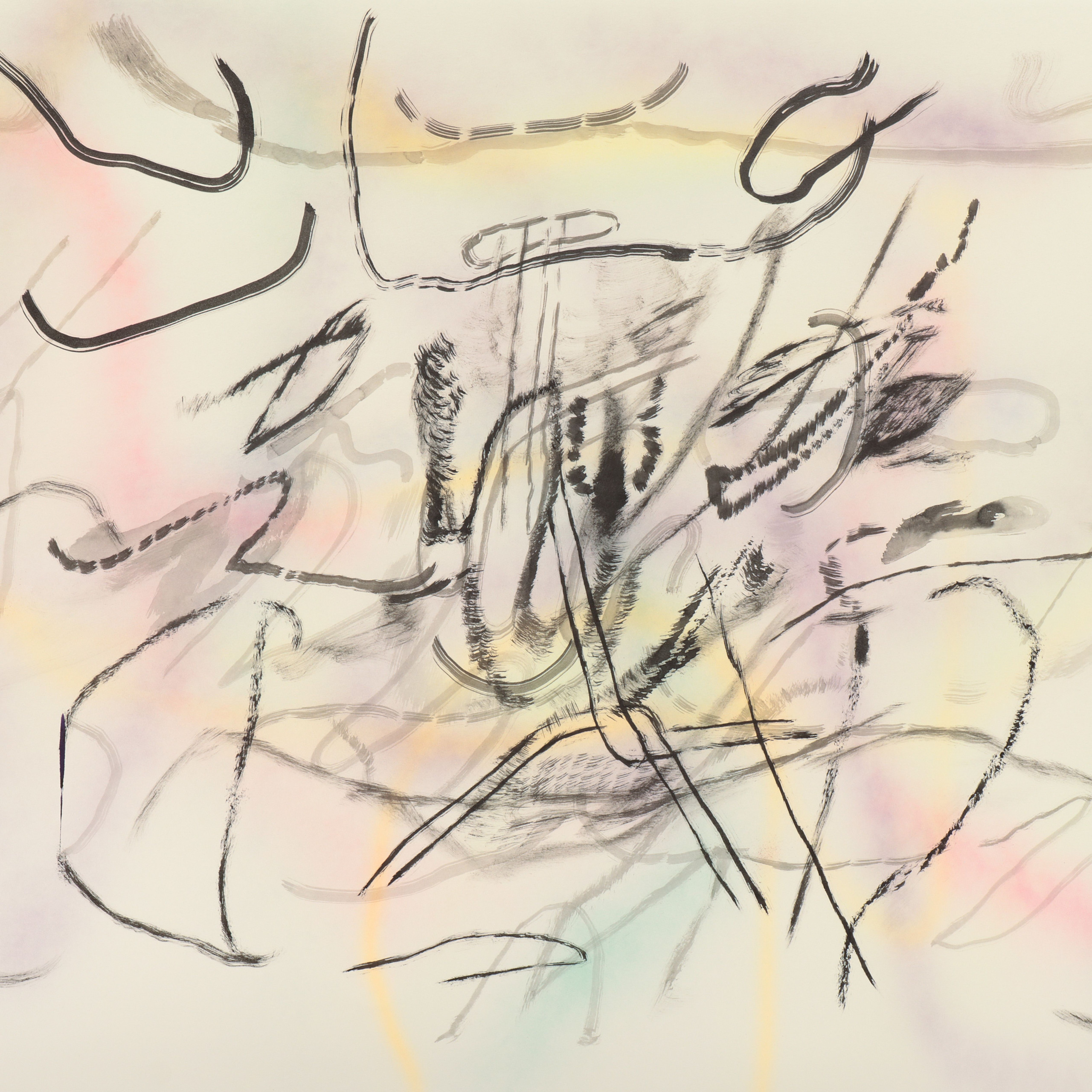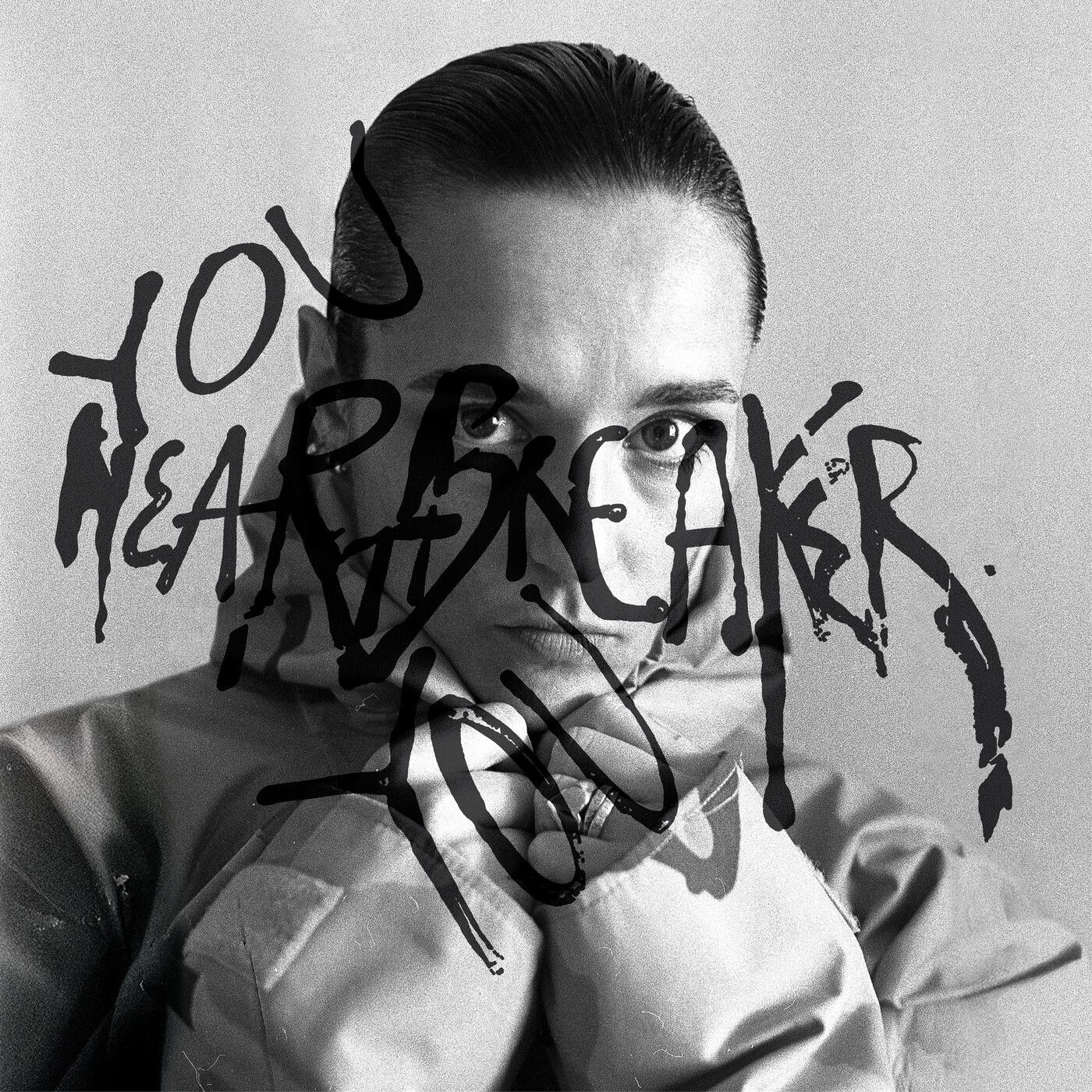Though she’s an established collaborator in New York’s experimental and club scenes, Jamie Krasner’s solo work as james K has always felt much more hermetic. Her collagist style holds complicated emotions in dreamy suspense, conjuring a zone apart where she alone controls the weather. Swerving between dusky trip-hop, pummeling shoegaze, and hazy ambience, her music captures fraught feelings in queasy panoramas. Her prior albums, 2016’s PET and 2022’s Random Girl, contained their shimmer and chaos like freshly shaken snow globes, leaving Krasner’s presence only half-discernable beneath flurries of synths and industrial squall. The moments when the air cleared were spellbinding, though it felt like only a matter of time before she again slipped out of view.
The third james K album, Friend, is remarkable enough as a piece of pop craftsmanship, but its real achievement is in how beautifully Krasner is able to chart a path from her private realm into our own. She distills the musical eclecticism of her earlier work into a crystalline interpretation of dream pop, using the surface blur and forward motion to keep weighty ideas in flight. Her production is still suffused with mist, but it’s grown bigger, brighter, and more fun. The pillowy atmosphere supporting her voice now has a rapidly shifting and dynamic ground floor beneath it, one that veers from drum’n’bass to downtempo, IDM to G-funk. With some slight tweaks, the musician preserves the signature hazy dream logic of her lyricism while coming more fully into her own complications.
Unlike her prior albums, which were self-produced, Krasner developed Friend alongside a clutch of collaborators including Patrick Holland (aka Project Pablo), Priori, ex-terrestrial, Ben Bondy, and the Berlin-based Special Guest DJ. With their help, she manages to give her music a new cinematic sweep and propulsion. “Blinkmoth (July Mix)” begins at a whisper and conjures a full horizon. Modulating a gasping, processed sample of her voice so that it runs parallel with the dusky house beat, Krasner creates a stuttering vocal hook that’s almost indistinguishable from the peal of an electric guitar. As the song builds to a head, she reminds you of her ear for texture by barreling into the already panoramic sound with the sort of aqueous, side-long guitar solo that Alex Scally uses to light up the best Beach House songs.
Krasner’s facility for reverb-drenched instrumentals makes comparisons to the greats of shoegaze and dream pop inevitable. But she also has an easy intimacy to her singing that evokes Dido or Sarah McLachlan and could have made her a trillionaire in the Starbucks CD economy. This is a quality used sparingly on previous releases, but what’s brilliant about Friend is how clear and direct of a presence Krasner is. A song like “On God” ranks among her most full-on pop moments: Krasner pirouettes through a crush of reverbed guitar while weighing deep questions about trust and faith. Her lyrics and delivery are cryptic but conversational, the existential ponderings of a slightly stoned best friend. “Doom Bikini” turns Krasner’s introversion inside out, weaving daydreams and anxiety into a tapestry celebrating an overactive life of the mind. Her sly sense of humor is written all over the song, which peaks with the sudden whine of a G-funk synth, another wild flare-up from her imagination.
Despite their pop tendencies, Friend songs frequently clear four or five minutes by chasing ambience beyond standard verse-chorus structure. On “Hypersoft Lovejinx Junkdream,” Krasner weighs romantic failure over a muted jungle beat and a backdrop of chirping cicadas. When her voice drops out, all that’s left is the vague blur of her disappointment. “Idea.2” is built over a malfunctioning IDM beat that continually doubles back on itself; Krasner sings in a round of paralyzing indecision as wistful synths do battle with lasers. Even on “N’Balmed” and “Rider,” where the fog is turned up to the max, she never cedes the spotlight. By layering her vocals and using the uplift in her production to send them scattering, Krasner is able to channel deeply ambivalent emotions. Her anguish and ecstasy streak across the mix like runny watercolors.
The album peaks with “Play,” probably the most straightforwardly pleasurable song of Krasner’s career: a kiss-off to a romantic partner whose lack of commitment threatens to leave her reeling. But if its theme is classic, the song’s path is anything but conventional. It begins as a wisp but grows increasingly massive and self-possessed, reaching bigger and bigger climaxes as jungle breaks and blaring shoegaze guitars underline her dawning boldness. “Right now, I feel that I am found/Right where, I know that I feel the ground,” she sings with relish. The secret of Krasner’s mutable sound and butterfly-net whimsy is that she seems to know exactly where she’s headed.
All products featured on Pitchfork are independently selected by our editors. However, when you buy something through our retail links, we may earn an affiliate commission.

